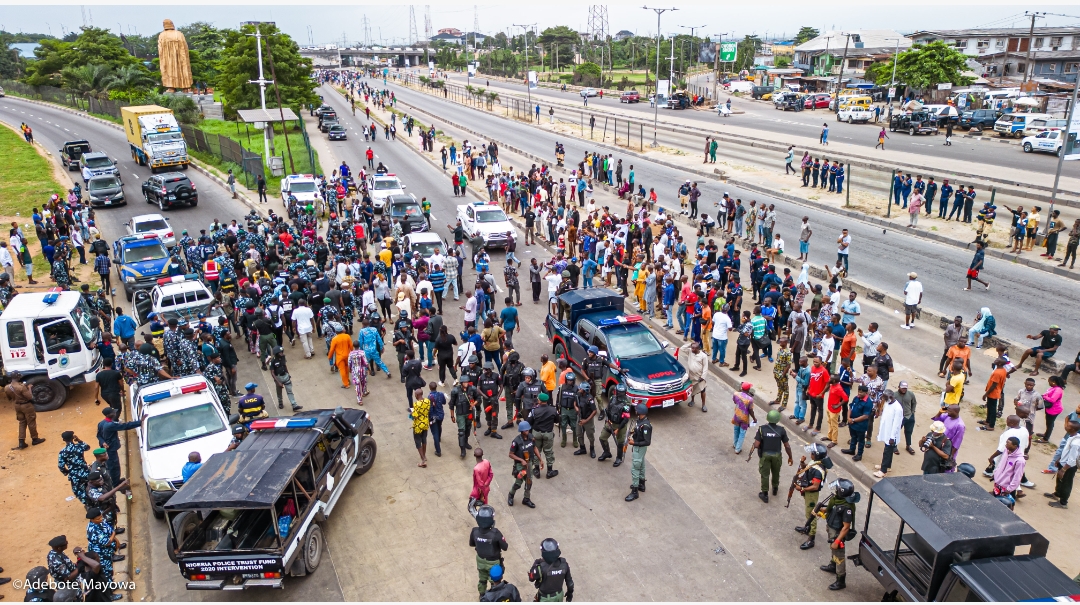Adebote Mayowa
August 1st, 2024, may well mark the beginning of another significant chapter in Nigerian history. As I made my way to the protest location yesterday, my thoughts drifted back to the EndSARS protests that occurred about four years ago, leaving deep scars on our collective psyche.
Reflecting on the scene before me, I noticed that there were four distinct groups of people present on the streets today. Joining the protest, I found myself uncertain of which category I fit into at first.
The first group consisted of the protesters themselves—a diverse array of Nigerians who took to the streets to voice their discontent with the government’s performance. Their reasons for protesting varied: some were driven by the high cost of food and the pervasive hunger and hardship, others by the soaring fuel prices. However, the common thread among them was a deep-seated frustration with bad governance.
The second group I observed were the onlookers. These individuals had come out to witness the unfolding events, driven by curiosity and perhaps a touch of fear. Their apprehension was palpable, likely influenced by the heavy police presence and the violent turn many past protests in Nigeria have taken.
Then, there were the media personnel, diligently documenting the protest, regardless of the risks involved. Their goal was to capture the essence of the moment and ensure that the world could see and understand what was happening.
Finally, there were the uniformed security personnel, including police officers, soldiers, and members of the Civil Defense. Officially, they were there to maintain order. However, I couldn’t help but notice a significant gap in motives between the protesters and the security forces. While the men in uniform claimed to be there to protect and ensure orderliness, it was evident that they were poised, awaiting orders from higher authorities to disperse the protesters.
I had never seen such a formidable response from the Nigerian Police Force to any other security issue within the state. Their presence was overwhelming, complete with a helicopter hovering over Ojota, Lagos.
As I pondered the implications of this protest, I hoped that it would mark the beginning of a remarkable positive change in Nigerian history. With eight days of scheduled protests ahead, my hope is that this movement will ultimately lead to the positive change and results that the protesters are fervently seeking.

